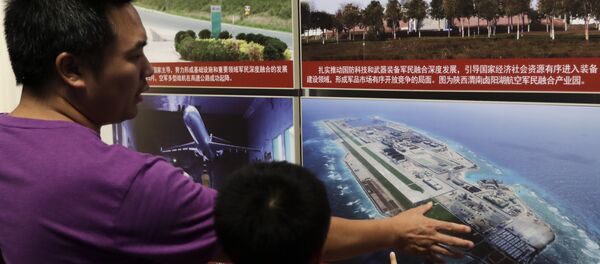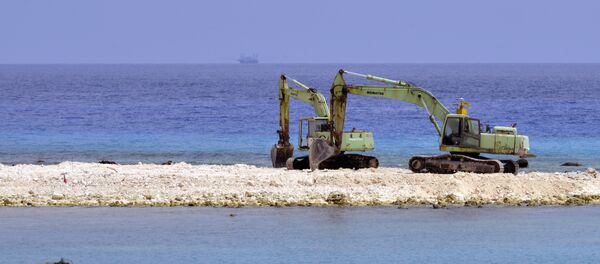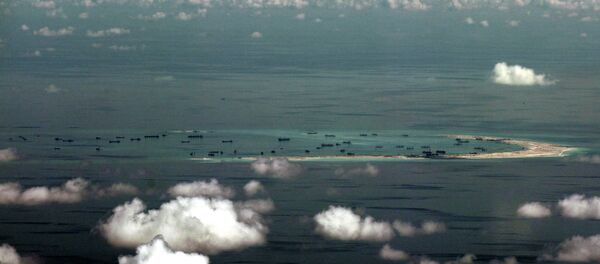The Arleigh Burke-class guided missile destroyer the USS Hopper swooped close to the disputed atoll of Scarborough Shoal, which is also known as Huangyan Island in China. This sparked furor in the People's Daily, which as a party-owned newspaper is often used to unofficially express the position of the Chinese government.
"Against this backdrop of peace and cooperation, a US ship wantonly provoking trouble is singleminded to the point of recklessness," the article reads, arguing that US naval activity is a hindrance to peace and stability in the South China Sea.
"If the relevant party once more makes trouble out of nothing and causes tensions, then it will only cause China to reach this conclusion: in order to earnestly protect peace in the South China Sea, China must strengthen and speed up the building of its abilities there."
The Pentagon did not directly comment on the incident, but in a Monday statement they did mention that such patrols through the South China Sea were routine.
The South China Sea, a strategically and economically key maritime region, is disputed between numerous Asian nations. Beijing is particularly interested in land reclamation there to support construction projects it launched in the area starting in 2013.
Brunei, Indonesia, Malaysia, the Philippines, Taiwan and Vietnam each also claim some shred of the region — but China has aggressively pushed its claim through the construction of artificial islands around the disputed Spratly Island chain.
The island in question, Scarborough Shoal, has not been the site of land reclamation, though. The island reached its apex of geopolitical significance in April 2012, when China and the Philippines deployed naval forces to the region and sanctioned one another after the Philippines detained eight Chinese fishing vessels and accused them of illegal fishing around the Shoal.
In 2016, the International Court of Arbitration ruled in the Philippines' favor, concluding that China had no historic claim to the Scarborough Shoal and other disputed islands and that their fishing, land reclamation, and construction activity had violated the Philippines' sovereignty.
Beijing rejected the ruling and continues its activity in the South China Sea to this day. Since then, Beijing-Manila relations have improved, with both nations agreeing to seek diplomatic solutions to any further territorial disputes.
The situation is further complicated by the US military patrolling and performing exercises along with allies such as India in the key maritime region. Washington argues that these exercises are to ensure Freedom of Navigation — the right of ships to travel through international waters without being harassed — is being respected.
By calling the South China Sea international waters, the US is also tacitly denying the Chinese claims to sovereignty over the region. Unsurprisingly, Beijing is not pleased.
The South China Sea had slipped to the backburner of US-China relations recently as both nations seem more focused on their mutual issue of North Korea's rapidly expanding missile program. US President Donald Trump has sought Chinese cooperation in leveraging Pyongyang to put a stop to their program, as China is the dominant political and economic patron of their isolated neighbor.






